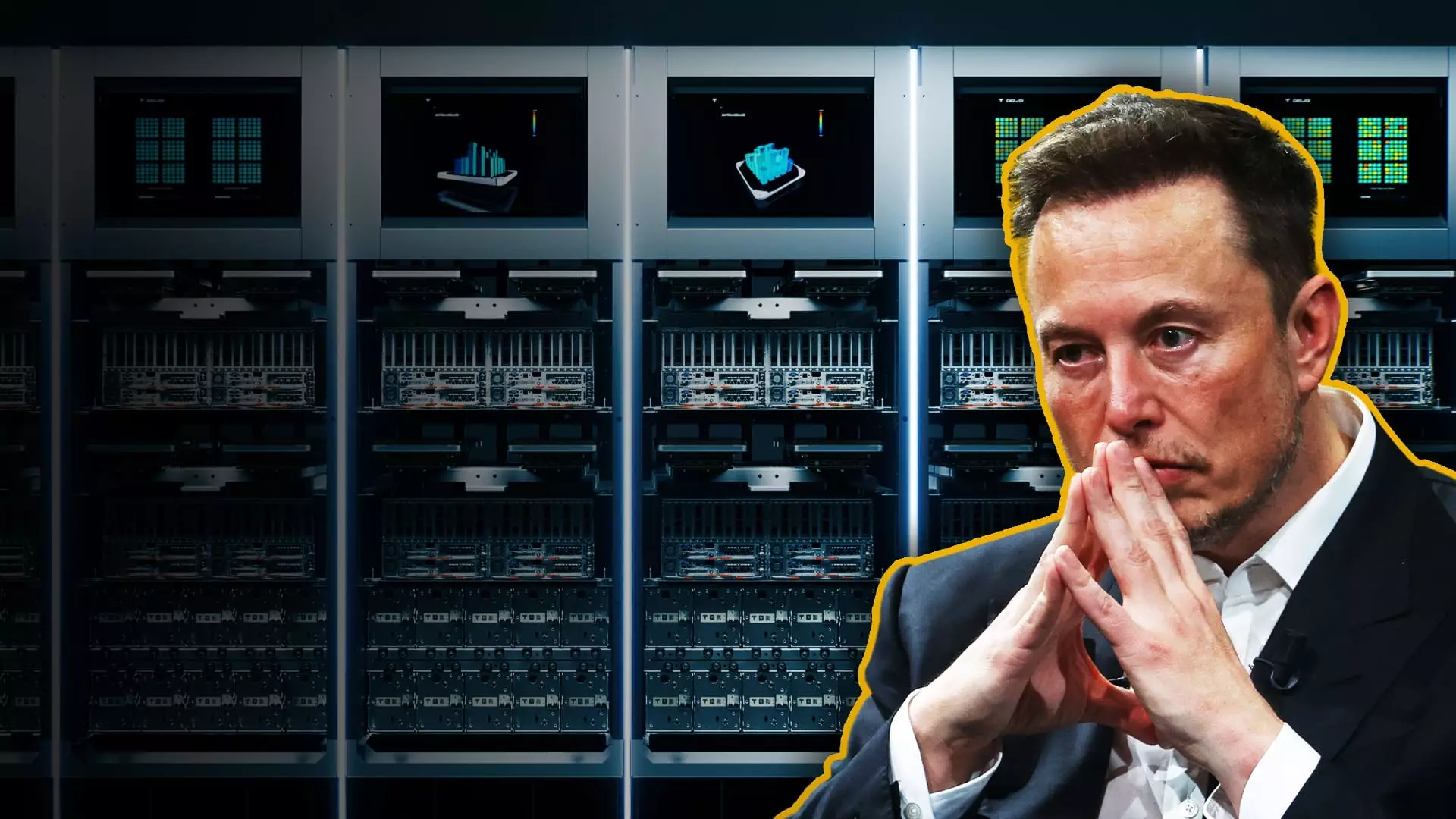In the dynamic world of artificial intelligence and advanced computing, few figures stand out as prominently as Elon Musk. Known for his groundbreaking ventures in various industries, Musk is now channeling his focus towards the development of supercomputers under his leadership in Tesla and his newly established AI venture, xAI. With billions in investment and bold proclamations, Musk’s vision transcends traditional automotive paradigms, pushing for a revolutionary integration of AI and robotics that could reshape entire industries.
Musk has declared that Tesla should no longer be perceived merely as a car manufacturer but should be recognized as an AI and robotics company. This paradigm shift is not just a rhetorical flourish. By investing approximately $500 million in the construction of its bespoke supercomputer, Dojo, in Buffalo, New York, Tesla showcases its ambition to leverage artificial intelligence as a core component of its operational strategy. Additionally, the creation of another supercomputer cluster, Cortex, at the company’s Austin headquarters underlines its commitment to harnessing the vast data pipeline generated by its vehicles.
Every car produced by Tesla is equipped with eight cameras, collecting an immense trove of data while traversing an average of 10,000 miles annually. This captured data becomes instrumental in training AI models that enhance the car’s Autopilot features and its more extensive Full Self-Driving (FSD) system. Through the processing capabilities of Dojo, Tesla aims to refine its driver assistance technologies, paving the way for a future where autonomous driving could become a reality.
Despite these lofty ambitions, Tesla’s journey toward full autonomy is not devoid of challenges. Regulatory bodies have questioned the implications of Musk’s proclamations regarding Autopilot and FSD, scrutinizing claims that suggest these systems may mislead consumers into believing their vehicles possess autonomous capabilities. Such complexities arise amid a rapidly evolving competitive landscape where companies like Waymo, Cruise, and Zoox are already operating commercially available autonomous taxi services.
In this context, Musk’s pledge for Tesla to achieve full autonomy soon is critical, especially given the company’s recent performance indicators that suggest it may be lagging behind its competitors in the autonomous vehicle domain.
Dojo is not just a supercomputer; it symbolizes Tesla’s vision for a future where intelligent machines play an integral role in daily life. Beyond refining autonomous driving technologies, Dojo is expected to be pivotal in developing Tesla’s humanoid robot, Optimus, anticipated to begin deployment in factories next year. Musk’s backing of the project aligns with his overarching narrative of integrating AI solutions across various operational spectrums.
Furthermore, the anticipated unveiling of Tesla’s robotaxi services points to an aggressive push in the robotaxi market, an area Musk has previously suggested could advance Tesla’s valuation and market relevance dramatically. These developments reflect Musk’s relentless ambition to advance AI capabilities in a manner that not only enhances Tesla’s product offerings but maintains its competitive edge.
Parallel to his efforts with Tesla, Musk has also launched xAI, an initiative dedicated to developing sophisticated AI models akin to those produced by behemoths like OpenAI, Microsoft, and Google. With $10 billion planned for AI investments in 2023, Musk is setting the stage for xAI to innovate within this intensely competitive domain, leveraging a supercomputer being developed in Memphis, Tennessee, for training its products, such as the chatbot Grok.
Musk’s departure from OpenAI has been marked by sharp criticisms, positioning him as a contrarian challenging the status quo of AI development. His aspiration for xAI indicates a desire to create alternatives that diverge from the mainstream narratives of major tech offerings.
Collectively, Musk’s ventures reflect a commitment to pioneering advancements that merge AI with practical applications in transportation and robotics. By developing supercomputers like Dojo and building a platform for xAI, he is positioning himself at the forefront of a technological revolution that has the potential to redefine our relationship with machines. The road ahead is fraught with both technical and ethical challenges, yet in Musk’s worldview, it is a challenge worth pursuing.


Leave a Reply